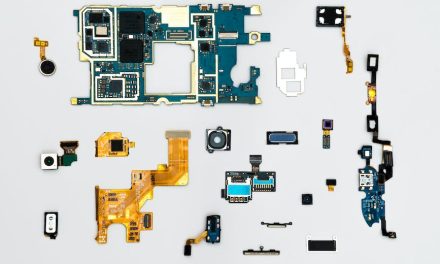Table of Contents
“Empowering Minds, Transforming Societies”
Introduction
Education plays a crucial role in driving social change by empowering individuals with knowledge, skills, and critical thinking abilities. It serves as a catalyst for transforming societies, challenging existing norms, and promoting equality and justice. Through education, individuals gain the tools necessary to understand and address social issues, fostering a more inclusive and progressive world.
The Impact of Education on Social Equality

Education plays a crucial role in driving social change and promoting social equality. It has the power to transform individuals, communities, and societies by providing knowledge, skills, and opportunities for personal and collective growth. By examining the impact of education on social equality, we can better understand how education can be a catalyst for positive change.
One of the key ways in which education promotes social equality is by providing equal opportunities for all individuals, regardless of their background or socioeconomic status. Education serves as a leveling ground, where individuals from different social, economic, and cultural backgrounds can come together to learn and grow. By ensuring that everyone has access to quality education, we can bridge the gap between the privileged and the marginalized, creating a more equitable society.
Furthermore, education empowers individuals to challenge social norms and question existing power structures. Through education, individuals gain critical thinking skills, enabling them to analyze and evaluate societal issues. This critical consciousness allows individuals to recognize and challenge social inequalities, leading to the development of more inclusive and just societies. Education helps individuals understand the root causes of social inequality and provides them with the tools to advocate for change.
In addition to empowering individuals, education also plays a vital role in promoting social mobility. By acquiring knowledge and skills, individuals can improve their socioeconomic status and break free from the cycle of poverty. Education equips individuals with the necessary skills to enter the workforce, increasing their chances of securing stable employment and higher incomes. This upward mobility not only benefits individuals but also contributes to the overall economic development of a society.
Moreover, education fosters social cohesion and promotes understanding among diverse groups. In a multicultural and diverse society, education serves as a platform for individuals to learn about different cultures, traditions, and perspectives. By promoting intercultural understanding and empathy, education helps to reduce prejudice and discrimination, fostering a more inclusive and harmonious society. Education encourages individuals to embrace diversity and work towards building a more tolerant and accepting society.
However, it is important to acknowledge that education alone cannot eradicate social inequality. While education provides individuals with opportunities, the structural barriers and systemic inequalities that exist in society must also be addressed. Access to quality education must be ensured for all, regardless of their socioeconomic background. Adequate resources and support systems must be in place to ensure that marginalized communities have equal access to education.
In conclusion, education plays a pivotal role in promoting social equality and driving social change. It provides equal opportunities, empowers individuals to challenge social norms, promotes social mobility, and fosters social cohesion. However, it is essential to recognize that education alone is not sufficient to address social inequality. Efforts must be made to address the structural barriers and systemic inequalities that exist in society. By combining education with comprehensive social policies and initiatives, we can create a more equitable and just society for all.
Education as a Catalyst for Empowerment and Social Mobility
Education has long been recognized as a powerful tool for social change. It has the potential to empower individuals and communities, providing them with the knowledge and skills necessary to challenge existing social structures and create a more equitable society. Education serves as a catalyst for empowerment and social mobility, enabling individuals to break free from the constraints of their circumstances and pursue a better future.
One of the key ways in which education empowers individuals is by equipping them with knowledge. Education exposes individuals to a wide range of ideas, perspectives, and information, enabling them to critically analyze the world around them. This knowledge allows individuals to challenge existing social norms and question the status quo. By understanding the root causes of social inequalities, individuals can work towards dismantling oppressive systems and advocating for change.
Furthermore, education provides individuals with the skills necessary to actively participate in society. Through education, individuals develop critical thinking, problem-solving, and communication skills. These skills are essential for engaging in meaningful dialogue, advocating for one’s rights, and effecting change. Education also fosters creativity and innovation, enabling individuals to develop new ideas and solutions to address social issues. By equipping individuals with these skills, education empowers them to actively contribute to the betterment of society.
Education also plays a crucial role in social mobility. It provides individuals with opportunities to improve their socioeconomic status and break free from the cycle of poverty. By acquiring knowledge and skills, individuals can access better job opportunities and higher-paying careers. Education opens doors to higher education, which in turn leads to increased earning potential and social mobility. Moreover, education can also provide individuals with the necessary tools to become entrepreneurs and create their own economic opportunities. By enabling individuals to improve their economic circumstances, education serves as a pathway to social mobility.
In addition to empowering individuals, education also has a transformative effect on communities. When individuals are educated, they are more likely to actively engage in their communities and work towards positive change. Education fosters a sense of civic responsibility and encourages individuals to become active citizens. Educated individuals are more likely to vote, participate in community organizations, and advocate for social justice. By empowering individuals to become agents of change, education has the potential to transform entire communities.
However, it is important to acknowledge that education alone is not sufficient to bring about social change. Structural barriers and systemic inequalities often hinder individuals from accessing quality education. Socioeconomic status, race, gender, and geographic location can all impact an individual’s access to education. Therefore, in order to truly harness the power of education for social change, it is crucial to address these systemic barriers and ensure equal access to quality education for all.
In conclusion, education serves as a catalyst for empowerment and social mobility. By equipping individuals with knowledge and skills, education empowers them to challenge existing social structures and advocate for change. Education also plays a crucial role in social mobility, providing individuals with opportunities to improve their socioeconomic status. Furthermore, education has a transformative effect on communities, fostering active citizenship and collective action. However, in order to fully harness the power of education for social change, it is essential to address systemic barriers and ensure equal access to quality education for all.
Education’s Role in Promoting Tolerance and Diversity
Education plays a crucial role in promoting tolerance and diversity within society. By providing individuals with knowledge and understanding of different cultures, beliefs, and perspectives, education helps to break down barriers and foster a more inclusive and accepting society. This article will explore the various ways in which education contributes to social change by promoting tolerance and diversity.
One of the primary ways in which education promotes tolerance and diversity is through the curriculum. Schools have the power to shape the minds of young individuals and expose them to a wide range of ideas and perspectives. By incorporating diverse voices and experiences into the curriculum, educators can help students develop a more nuanced understanding of the world around them. This exposure to different cultures and beliefs helps to challenge stereotypes and prejudices, fostering a more inclusive and accepting society.
Furthermore, education provides a platform for open dialogue and discussion. In classrooms, students have the opportunity to engage in conversations about sensitive topics such as race, religion, and gender. These discussions allow students to share their own experiences and perspectives, while also learning from their peers. By creating a safe and respectful environment for dialogue, education encourages empathy and understanding, helping to break down barriers and promote tolerance.
In addition to the curriculum and classroom discussions, education also plays a role in promoting tolerance and diversity through extracurricular activities. Schools often offer clubs and organizations that celebrate different cultures and promote diversity. These activities provide students with the opportunity to learn about and appreciate different traditions, languages, and customs. By participating in these activities, students develop a sense of respect and appreciation for diversity, which they can carry with them into their adult lives.
Moreover, education can also address the root causes of intolerance and discrimination. By teaching critical thinking skills and promoting media literacy, education helps individuals to question and challenge biased narratives and stereotypes. This empowers individuals to think independently and form their own opinions, rather than simply accepting the dominant narratives that perpetuate discrimination. By equipping individuals with the tools to critically analyze information, education helps to combat ignorance and prejudice, fostering a more tolerant and inclusive society.
Lastly, education can also play a role in promoting social change by encouraging individuals to become active citizens. Through civic education, individuals learn about their rights and responsibilities as members of society. They also learn about the importance of social justice and equality. By empowering individuals to take action and advocate for change, education helps to create a more just and inclusive society.
In conclusion, education plays a vital role in promoting tolerance and diversity within society. Through the curriculum, classroom discussions, extracurricular activities, and the promotion of critical thinking skills, education helps to break down barriers and foster a more inclusive and accepting society. By equipping individuals with knowledge, understanding, and the tools to challenge discrimination, education contributes to social change and creates a more tolerant and diverse world.
The Importance of Education in Addressing Social Injustice
Education plays a crucial role in addressing social injustice and promoting social change. It is widely recognized that education is a powerful tool that can empower individuals and communities to challenge and overcome systemic inequalities. By providing knowledge, skills, and critical thinking abilities, education equips individuals with the tools they need to understand, question, and challenge social injustices.
One of the key ways in which education addresses social injustice is by raising awareness. Education exposes individuals to different perspectives, histories, and experiences, allowing them to develop a deeper understanding of the social issues that exist in their communities and beyond. Through education, individuals can learn about the root causes of social injustices, such as poverty, discrimination, and inequality, and gain a broader understanding of the complex factors that contribute to these issues.
Furthermore, education fosters empathy and compassion. By learning about the experiences of marginalized groups, individuals can develop a greater sense of empathy and understanding towards those who face social injustices. This empathy can motivate individuals to take action and work towards creating a more just and equitable society. Education also helps to break down stereotypes and prejudices by challenging biased narratives and promoting inclusivity and diversity.
In addition to raising awareness and fostering empathy, education also provides individuals with the skills and knowledge needed to actively address social injustices. Through education, individuals can develop critical thinking abilities, problem-solving skills, and the ability to analyze and evaluate information. These skills are essential for individuals to identify and challenge social injustices in their communities. Education also equips individuals with the tools to advocate for change, whether it be through grassroots activism, policy advocacy, or community organizing.
Moreover, education can empower individuals to become agents of social change. By providing individuals with the knowledge and skills needed to challenge social injustices, education enables individuals to take action and make a difference in their communities. Education can inspire individuals to become leaders, activists, and advocates for social justice. It can provide them with the confidence and motivation to speak out against injustices and work towards creating a more equitable society.
However, it is important to recognize that education alone is not enough to address social injustices. While education can provide individuals with the tools and knowledge needed to challenge social injustices, systemic change is also necessary. This requires addressing the structural barriers and inequalities that perpetuate social injustices. It requires dismantling systems of oppression and creating inclusive and equitable institutions.
In conclusion, education plays a vital role in addressing social injustice and promoting social change. By raising awareness, fostering empathy, and providing individuals with the skills and knowledge needed to challenge social injustices, education empowers individuals to become agents of change. However, it is important to recognize that education alone is not enough. Systemic change is also necessary to address the root causes of social injustices and create a more just and equitable society. Education and systemic change must go hand in hand to create lasting social change.
Q&A
1. What is the role of education in social change?
Education plays a crucial role in social change by providing individuals with knowledge, skills, and critical thinking abilities necessary to challenge existing social norms, advocate for equality, and drive positive societal transformations.
2. How does education contribute to social change?
Education contributes to social change by empowering individuals to question and challenge oppressive systems, promoting awareness of social issues, fostering empathy and understanding, and equipping individuals with the tools to actively participate in creating a more just and equitable society.
3. Can education alone bring about social change?
While education is a powerful catalyst for social change, it alone cannot bring about comprehensive societal transformations. It must be accompanied by collective action, policy changes, and the dismantling of systemic barriers to create lasting and meaningful social change.
4. What are some examples of education’s impact on social change?
Examples of education’s impact on social change include the civil rights movement in the United States, where education played a pivotal role in challenging racial segregation and advocating for equal rights. Similarly, education has been instrumental in promoting gender equality, environmental awareness, and human rights movements worldwide.
Conclusion
In conclusion, education plays a crucial role in driving social change. It empowers individuals with knowledge, critical thinking skills, and the ability to challenge societal norms and injustices. Education promotes equality, fosters empathy, and encourages active citizenship, all of which are essential for creating a more just and inclusive society. By equipping individuals with the tools to understand and address social issues, education has the potential to bring about positive transformations and contribute to a more equitable and progressive world.




